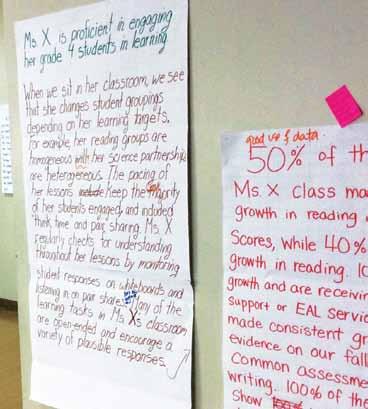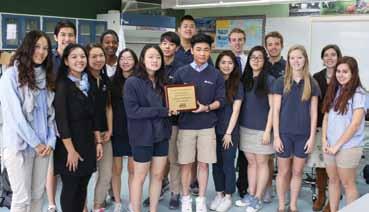
2 minute read
Press Release
Context-Based Instruction Results in Increased Levels of Learning and Coaching As we worked with these creative, courageous leaders we found that they loved learning about each other’s schools and work settings. They enthusiastically participated in activities where they were called upon to compare and contrast policies, procedures, and protocols at their respective schools. They welcomed a venue for brainstorming solutions to scenarios and applying assigned readings and materials to the realities of their own and each other’s professional settings.
Although we came to class with carefully crafted hypothetical scenarios designed to engage students in applying learning to a “real” context, at student request we repeatedly replaced our scenarios with their scenarios. Students made comments such as “I’d like to have the class work on my situation and give me suggestions.” We took our students’ lead and moved them from the hypothetical to the real.
Rather than course content imported by professors from the United States who have limited knowledge of the politics and realities of living and working in East Asia, the use of student-centered scenarios tailored our program to the needs of the future leaders of East Asia international schools. As a result, students reported high levels of practical learning and a readiness to apply their new skills in their work settings.
Conclusion EARCOS provides a rich, professional development opportunity for prospective educational leaders in East Asia international schools. USF and WSU have successfully partnered with EARCOS to provide an International Leadership Program that is unique in its approach and its outcomes. By embedding context-based instruction and structured group work, candidates report developing knowledge and skills crafted for their leadership work in East Asian schools, and perhaps more importantly the development of a professional network that will provide ongoing support and assistance for their work.
By Glenys Hill, Ed.D, Washington State University and Roger Rada, Ph.D., University of San Francisco
Student coach each other on teacher evaluations.
Press Release >> Concordia Shanghai’s young entrepre- neurs receive award for innovation Yunnan and as a way to earn funds to continue the authentic work they have started.
Students in Concordia Shanghai’s Social Entrepreneurship class were recently awarded the ACAMIS Koerschen Award for Innovation in Schools. Students applied for the award in hopes of sharing with the international community the impact their social enterprise, Third Culture Coffee Roasters, has had on the lives of farmers in rural

The Social Entrepreneurship class is an applied learning course that motivates students through education and first hand business experience to become social entrepreneurs and agents of change. Students source coffee beans directly from farmers in Yunnan, China, roast them on campus, and sell the roasted coffee to the community to guarantee that the process is socially and environmentally sustainable, while at the same time advocating for conscientious consumer habits and connecting consumers to their supply chain.
The students will apply the money from the award towards a new coffee roaster to help scale their business and further benefit the farmers in Yunnan.










